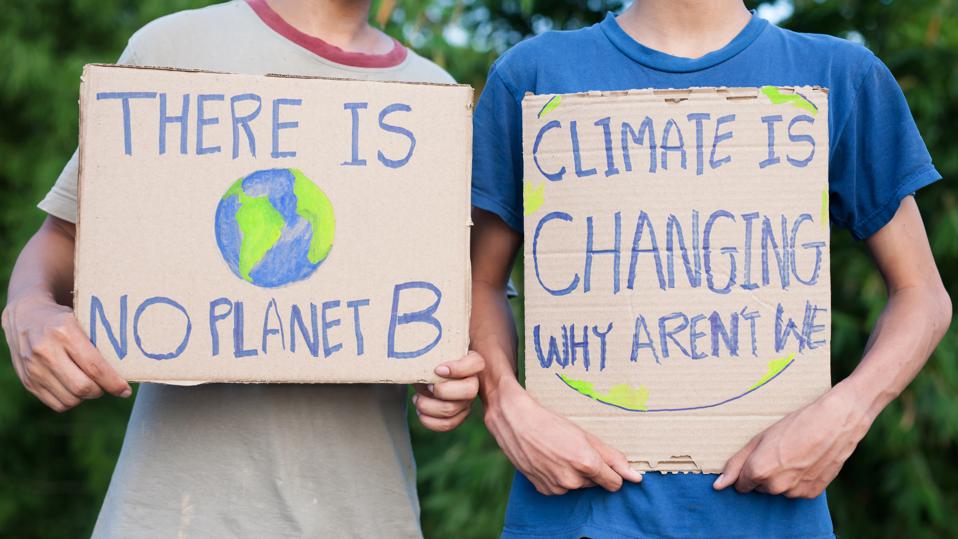At COP27, small businesses need governments and corporations to ratchet up ambition and the action to match
Over the coming two weeks, business, government, and civil society will convene in Sharm El-Sheikh, Egypt for the COP27 Climate Summit, to align on climate policies and actions needed to decarbonize the global economy. Around the world, we are seeing the consequences of our collective failure to act, with the world’s vulnerable most severely impacted. It is essential that businesses – of every size, sector, and region – raise their voice to call for action that creates a sustainable economy which leaves no one behind.
Amidst increasing economic uncertainty, rising energy costs, inflation and the continued impacts of the COVID-19 pandemic, climate change continues to compound risks for every business and community. Small and medium sized enterprises (SMEs) are often the hardest hit, with localized infrastructure, undiversified supply chains, and a reliance on the community in which they operate. We’ve heard from small businesses that have made the SME Climate Commitment which are experiencing the impacts of changing weather first hand. Wildfires are disrupting farms, wineries and restaurants; floods and hurricanes are shuttering hotels for repairs; and extreme heat and drought are disrupting retailers’ organic material sources and supply chains, causing businesses to stall.
These businesses don’t have the power to tackle climate change alone, yet they are disproportionately affected by its impacts. Governments and corporations must reform policy and support to prevent small businesses from suffering.
Governments and businesses convening at COP27 must align to:
1. Raise climate ambition – and implement the actions to match. Responsible businesses recognize that, as part of the communities they operate in, they are dependent on stable conditions to survive and thrive. A dangerously changing climate will harm their employees, customers and suppliers – and impact economic growth. Business and government must go all in to nurture resilient communities – and the small businesses that drive their economies – or both sides will suffer. Corporations and governments can point their smaller suppliers and local businesses towards the SME Climate Hub to access the free tools and resources needed to measure, reduce and report on emissions, in turn reaching shared climate goals.
2. Accelerate the transition away from coal, oil and gas to embrace renewables, energy efficiency and electrification. Large corporations with science-based emission reduction targets must support their suppliers in the switch to renewables, and governments must put practices in place that incentivize the shift to clean energy for every business, regardless of its size. Reducing reliance on fossil fuels allows for an economy that is more secure, especially for the communities most impacted by climate change and the rising cost of energy.
The We Mean Business Coalition recently published analysis on the economic opportunities of phasing out fossil fuels and found that policies that shift towards cleaner energy sources can result in $2,000 saved every year for a family of four. With small businesses often on similar tariffs to individual households, these policies will undoubtedly save money for SMEs. To ease the pressure on small businesses caused by the current energy crisis, we urge governments to immediately set policies that scale up renewables, energy efficiency and electrification.
3. Go all in to finance the global transition to net zero. Small and medium sized businesses are often among the innovators developing climate solutions needed to combat the crisis. Governments and corporates must accelerate investment into companies which are prioritizing emissions reduction technology and strategies.
4. Create policies that benefit small and medium sized businesses – and ensure they are the direct recipients of these actions. The United States recently passed the Inflation Reduction Act (IRA)’s $369 billion in investments and tax credits to make clean energy more accessible and affordable. Governments around the world must follow suit, and ensure that small businesses have the opportunity to take full advantage of these benefits to prepare for current and future economic and climate shocks.
The SME Climate Hub equips SMEs with the tools they need to assess and reduce their emissions, and over 5,000 businesses are already committed to taking action. We cannot reach global emissions goals without these businesses on board, but governments and corporations must join us in facilitating their action. Small businesses, meanwhile, must continue to do their part. Encourage others to take action through the SME Climate Hub.
Together, we can build a better future for your business and the communities you serve.

 Go back
Go back






